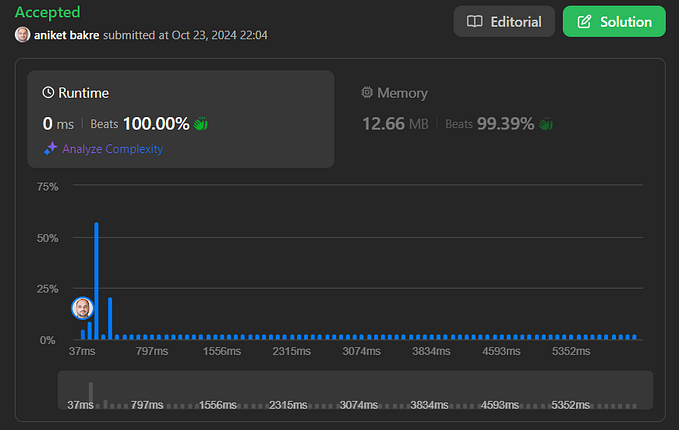We have n jobs, where every job is scheduled to be done from startTime[i] to endTime[i], obtaining a profit of profit[i].
You’re given the startTime, endTime and profit arrays, return the maximum profit you can take such that there are no two jobs in the subset with overlapping time range.
If you choose a job that ends at time X you will be able to start another job that starts at time X.
Example 1:

Input: startTime = [1,2,3,3], endTime = [3,4,5,6], profit = [50,10,40,70]
Output: 120
Explanation: The subset chosen is the first and fourth job.
Time range [1-3]+[3-6] , we get profit of 120 = 50 + 70.Example 2:

Input: startTime = [1,2,3,4,6], endTime = [3,5,10,6,9], profit = [20,20,100,70,60]
Output: 150
Explanation: The subset chosen is the first, fourth and fifth job.
Profit obtained 150 = 20 + 70 + 60.Example 3:

Input: startTime = [1,1,1], endTime = [2,3,4], profit = [5,6,4]
Output: 6Constraints:
1 <= startTime.length == endTime.length == profit.length <= 5 * 10^41 <= startTime[i] < endTime[i] <= 10^91 <= profit[i] <= 10^4
Problem Analysis:
This problem should use dynamic programming to solve it. Other methods seemed not easy for it.
As we have all job startTimes. we can iterate jobs by startTime. When iterating, we record the maximum profit at some endTime. Assume currently we iterate ith job, we can get the profit is this job’s profit adding maximum profit at some endTime that before ith job’s startTime. We record this profit if it’s maximum profit of all recorded.
So after iterating, we only record maximum profits at different endTimes. And we can make sure the final maximum profit is at the last recorded endTime.
Solution
class Solution {
public:
int jobScheduling(vector<int>& startTime, vector<int>& endTime, vector<int>& profit) {
vector<array<int, 3>> jobs(startTime.size(), {0, 0, 0});
for (int i = 0; i < startTime.size(); ++i)
jobs[i] = {endTime[i], startTime[i], profit[i]};
sort(begin(jobs), end(jobs));
map<int, int> dp = {{0, 0}};
for (auto& job: jobs) {
int current = prev(dp.upper_bound(job[1]))->second + job[2];
if (current > dp.rbegin()->second) dp[job[0]] = current;
}
return dp.rbegin()->second;
}
};Time complexity is O(nlogn)
Space complexity is O(n)





